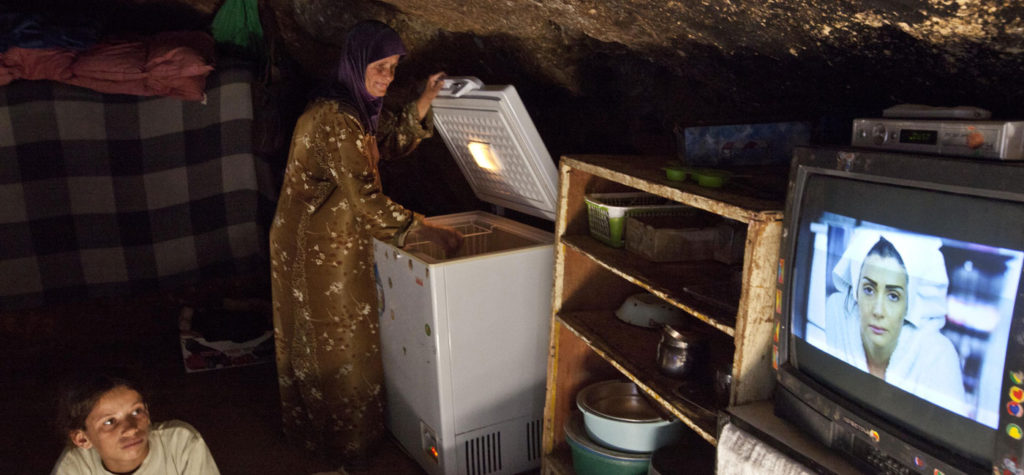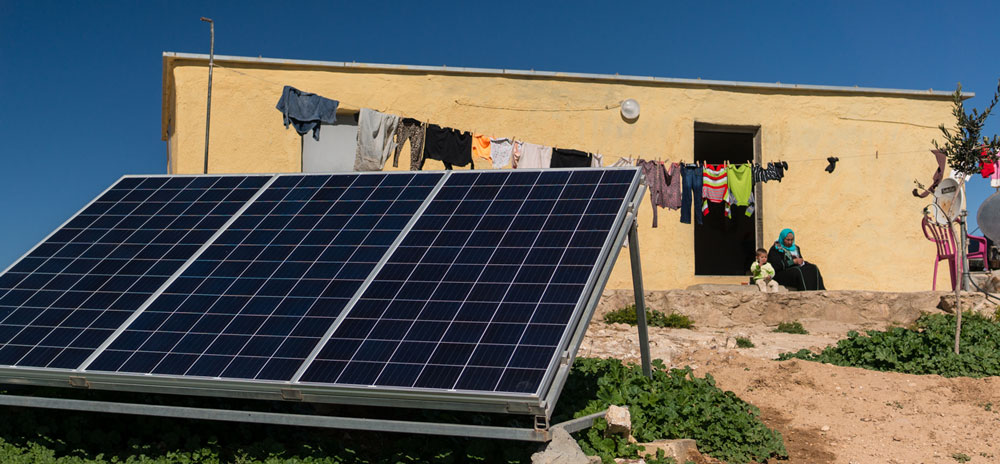Impact
Sustainable Development
Poverty reduction
The reliable provision of energy services allows Area C communities to tap into their economic and creative potential. Electric butter churns and refrigerators improve the efficiency of dairy production, the main source of family income, and increase the quality of the products. Families also save money by not having to purchase expensive gasoline for diesel generators. Reduction of the manual labor involved in household management improves households’ productivity and income-generation potential and has an impact in terms of economic development, education, and women’s empowerment.
Health
Electricity eliminates the use of dangerous and polluting kerosene lamps, enables the refrigeration of food and medicine, and allows the use of cell phones in case of a medical emergency. Refrigeration of medicine and access to electrical medical devices saves families long trips to far-away clinics for routine medical treatment. The drastic improvement in water quality from our bio-sand filters has an impact on community health, in particular for the elderly, the chronically ill, pregnant women, and children.
Women, youth, and family
Those who experience the change in the most palpable and meaningful way are the women, who traditionally bear the brunt of the manual labor involved in the day-to-day tasks of maintaining the household and its economy—from carrying water, cleaning, cooking, doing laundry, milking, and producing dairy products for family consumption and sale. Electrical appliances such as butter churns, washing machines, and water pumps save hours of arduous gender-specific labor. Women now use cell phones more freely to communicate with friends and relatives and are more exposed to information through radio and television.
Thanks to electric lighting, school children and older students can study after dark, increasing their academic achievements, while access to the internet helps them feel part of the world. The extension of the family’s day beyond sundown allows women to engage in leisurely activities such as embroidery, parents to more safely tend their babies’ needs at night, and the family to spend time together after dark.

“Thanks to electricity, the day is longer, generally lasting until 10:00 or 11:00 at night. Evening life now includes social content – the entire family gathers in the room/tent where the television is located, and together they watch their favorite series: Bedouin soap operas from Saudi Arabia and Jordan, portraying sheep growers – their customs, loves and passions, wars and celebrations. The sociocultural norms and lifestyles resemble those of the people watching. The heroes, male and female, become the topic of conversation, their accomplishments and failures provide a kind of framework for relating to people’s own lives here at home. Between one series and another, people watch Egyptian, Turkish and sometimes Indian films. Occasionally they listen to the news and see advertising, another way to learn about things in nearby countries, things that perhaps they themselves can aspire to have or to accomplish.
The women do not have to work in the evenings. They concentrate all their work during the daytime and approach their evenings as the men do, at leisure. Some use the electric light to embroider while the television is on, some chat and occasionally comment on what they are seeing on TV and a short conversation ensues within the family. The ambience is relaxed. People talk about any special tasks for the next day, and then go off to bed.
In a society in which division of labor, roles, and spaces is clear and rigid, the common space created when watching television in the evenings is a unique event. It is one of the rare moments in which everybody is free, all tasks have been completed, and children and adults alike gather in an informal and intimate atmosphere. Although the usual hierarchy is clearly present and only one person controls the TV remote – still, as the family relates to life on the screen, which resembles their own in many ways, the door opens for a conversation about their own life. Sometimes the conversation stresses obligatory norms, that which must be; sometimes it points to possibilities and prospects of that which might or could be. There is a lot of humor, laughs and giggling and sometimes even an undertone of criticism too. Most importantly, a new space opens up, one that encourages imagination, dreams, and aspirations.”
— From the expert opinion of social anthropologist Shuli Hartman on the impact of electricity in Jib a-Dhib, submitted to the Israeli Supreme Court in September 2017 following the seizure of the micro-grid by the Israeli authorities.

Read “Like Water for the Thirsty,” a report on the impact of Comet-ME’s renewable energy systems in Palestinian communities in the south Hebron hills by Shuli Hartman, social anthropologist and expert on rural Palestinian and Bedouin communities. The report from 2012 is based on six months of field work and first-hand observations.
